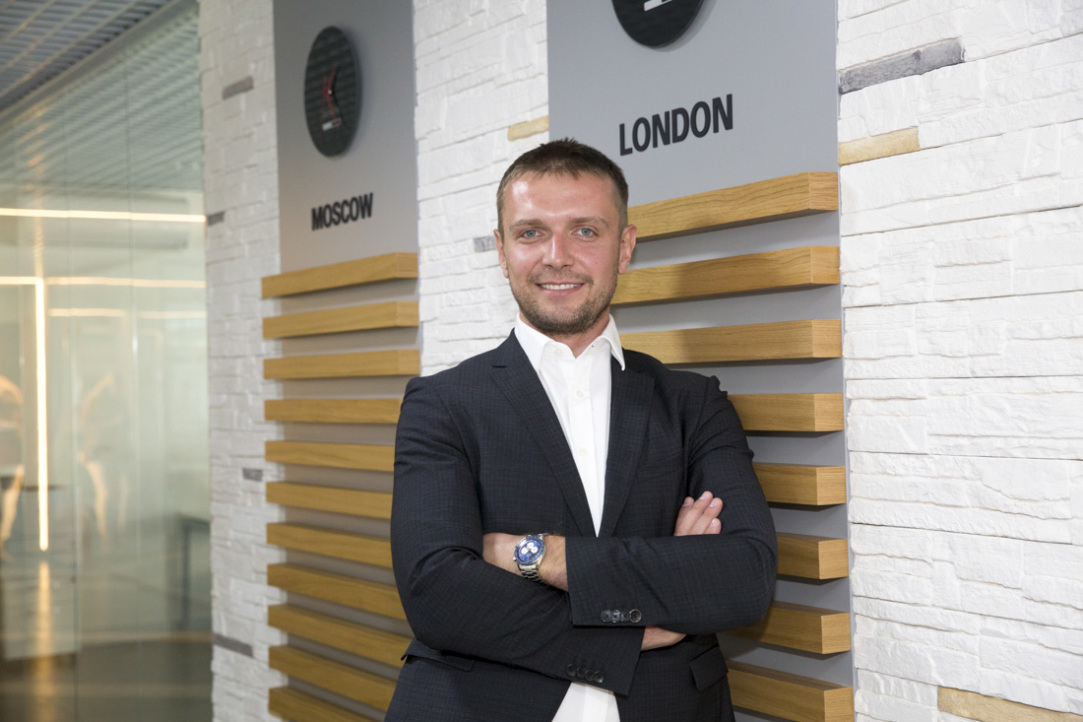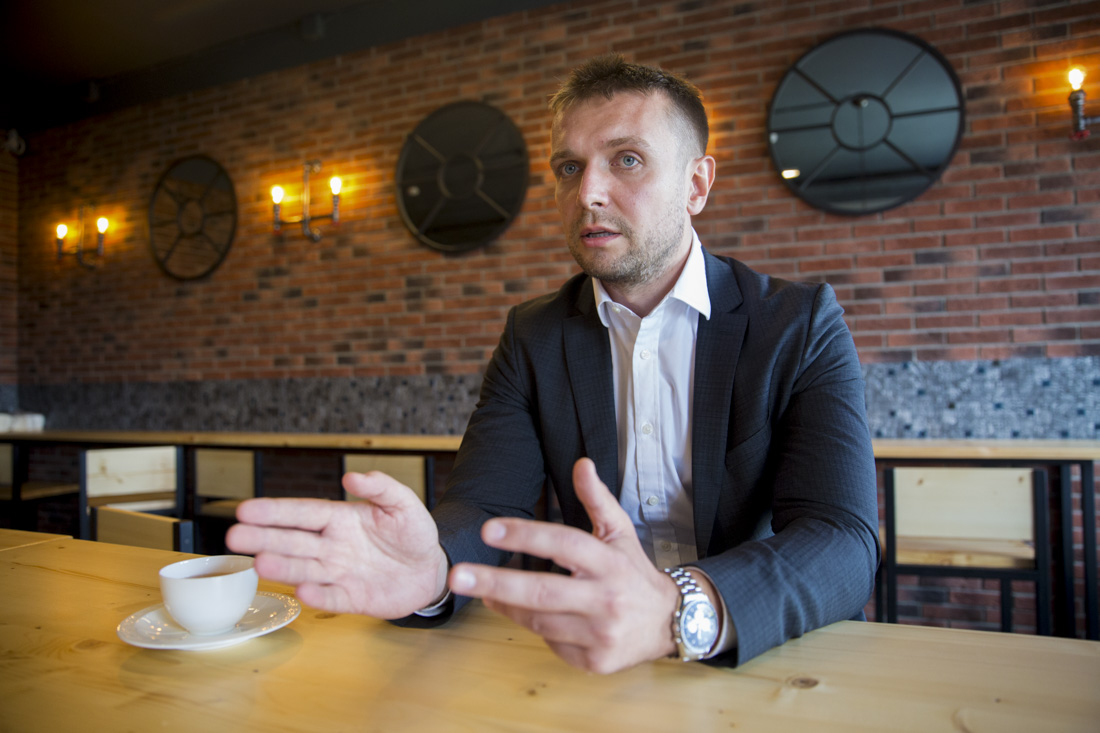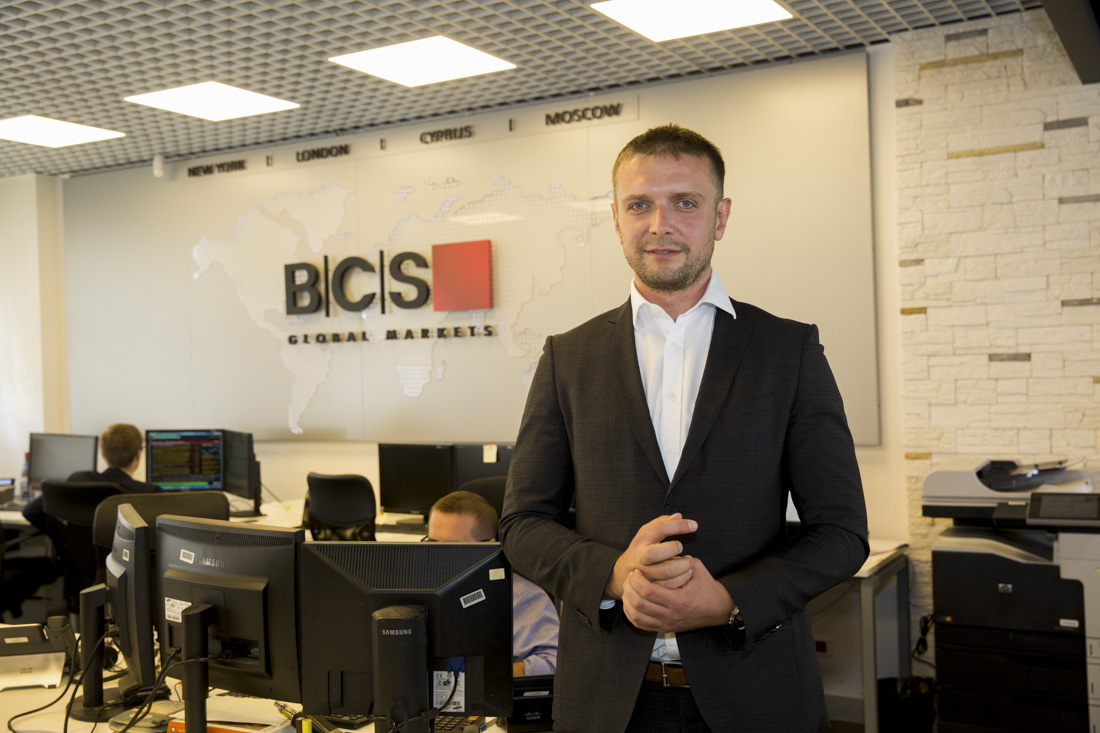'A true professional is unlikely to be concerned by market crises but instead evolves in response to them'

Kirill Chuyko is a member of the second cohort of ICEF’s BSc Programme and the graduating class of 2002. Currently in charge of Analytical Department at BCS Global Markets, Kirill continues to support ICEF by offering hands-on training to its students. In this interview, Kirill tells why international education is important, how to get your work cut out for you, what the job of an equity analyst is, and why economists are unlikely to be left jobless during the crisis.
Investing done right
It was 1998. A new, unique school had just emerged to offer something completely novel that was based on the needs of that time – HSE. As someone who graduated with honors and scored high in school exams, I was eligible for the fast-track admission. The Unified State Exam was yet to be introduced in the Russian schools. I first heard about HSE and its faculty of economics from my economics teacher who highly recommended it. Already a student there, my parents suddenly decide to make sure I have picked right. They do some investigation and learn about ICEF, telling me my choice wasn’t the best one: the unique opportunity of doing a double degree at ICEF – the HSE and the University of London undergraduate programme – was not be missed! This caused quite a stir in the family. They needed the money to pay for my tuition. It was quite an investment for us back then, but it paid off in spades. My parents were right.
When you work, work
Studying at ICEF, I dreamed about how I’d get my diploma, leave the building and have employers queuing up to recruit me…but, alas, even with a diploma as brilliant as mine one has to do some work before getting their career started. My first job was at the International Investment Bank, a parastatal bank where I managed to work for thirteen months, having developed not more than just four models. There was no need for more. The position I got hired to, financial analyst, was more of a homage to fashion; there was no vital business need for that bank to have it. I even had my own office there, which I used mainly as a sleeping place. Then, at some point, I thought to myself I had to do something about my professional degradation. I started exploring the market to figure out where I wanted to be and I quit that job.
What followed was a succession of jobs of convenience. First I joined the company called Istok, then Renaissance credit company, and then I received an offer from URALSIB, quite by chance, to be its equity analyst, which I accepted straight away.
The job at URALSIB sounded like it could unlock two long-desired things for me – perpetual dynamism, implied by equity, and thinking agility, implied by analyst
That job turned out a real school of life. It had kick-started my career and personal growth. The role of an equity analyst isn’t easy and requires endless flexibility and sharp mind. What was more, equity analysts were like demigods to me, a league of their own, judging from how they were described in Vedomosti and Kommersant. But, once you become one of them and learn how their world works, there’s a bit of a frustration to be experienced when you realize your dream job is not how you imagined it to. As with every other occupation, there are inner workings to be experienced and that implies tireless work.
Moving the career in the right direction
Unlike analytics, investment banking is largely about M&A deals and it’s kind of like the army – just a word of warning. Be prepared for three tough years before you get your first promotion and another three to get your second one, if you survive, of course. There’s even this ‘new boy bashing’ thing you might be faced with, when a novice is merely a resource to get the deal done, information gathered or presentation prepared. It’s like climbing up the food chain, there can be no mercy in IB. But once you get to the top, you’ll have the employers queueing up for you.

Analytics is a slightly different story. For someone who wants to start a career in the stock market, it’s essential to remember how important speed is. There are two questions equity analysts need to be able to answer at lightning speed: What happened? and What to do about it? And if they are, if they know how to keep ahead of the curve, they are bound to become a client magnet.
To picture how it happens, imagine yourself sitting in the office writing a report when the news comes that one company is about to sell its shares to another. You have it worked over to the last detail when another news comes and there can be as many as five of them per day to be worked on, let alone every 10 minutes during the reporting season.
What I like about investment analytics is how instantaneously you have your action responded
You write your report quickly, have it released within an hour as the stock rises 1% to 2%, much to you customers’ satisfaction, and there is this feeling that you get three or four hours later, when you get the approval response, that can’t compare even to how you feel after getting an IB deal finally sealed after six-month work. In IB, you are supposed to dig into every single detail of the project and you have to dig deep, because you are responsible for the result. It’s about deal structuring and calculation of the risks, including legal ones, with utmost care. The key word there is digging, digging from dusk to dawn, whereas equity analytics is what keeps you searching for ways to have multiple tasks done in parallel. So, the choice is yours.
What the market thinks about international education
Employers look at your degree when they are your first employer. I owe my first job – the one that had me sleeping on the windowsill with Yellow Pages for a pillow – to my prestigious diploma. Your first job interview is just one in a series of tests. Once you get on board, you continue within the frameworks of the job roles your employer has for you and the next big thing he’ll need from you is knowledge and self-confidence. As a professional, I am delighted to be a part of ICEF community and have access to its brilliant specialists. We, ICEF graduates, are of the same breed.
What I would like to highlight particularly is English as the language of instruction. It is the English-speaking world where the subject areas of economics, finance, accounting, etc. first took shape, and it would be only right to teach these subjects using their original language. By doing so, we get a better understanding of the British institutions with their centuries-old traditions. By adopting their spirit and culture, we get a touch of elitism, higher self-esteem and sense of superiority over challenges, whether personal or professional.
ICEF community power in action
As someone who studied here, I would like to contribute to ICEF’s further growth. BCS and ICEF have come up with the idea for a project to involve students in our report writing process. As a student mentor, I have been involved in preparing ICEF team for the two stages of CFA Institute Research Challenge, where they performed excellently. My connection with ICEF has turned out lifelong. I am in touch with the students, the graduates and the faculty staff. Whenever I get a call from Oleg Zamkov, it’s always with great pleasure that I respond to his request. It's nice to be remembered.

By involving undergraduate students in the work of BCS, we give them the opportunity to try out the industry, learn how they feel about being there and how the fundamental pillars of life operate through the market processes. This is an excellent hands-on addition to the academic nature of ICEF’s programmes. As a fresh graduate, I entered the workplace to find my fine background come to nothing over the course of just one week because I simply didn’t know how to use it.
What makes BCS a great place to be
After a few years of successful performance as an analyst, particularly at UBS, I was invited to lead the analytics team at BCS Global Markets. I wanted to do something bigger than analytics. I wanted to develop products. BCS is the number one broker on the market in terms of turnover. We boast a diverse clientele that spans private shareholders and major equity holders in Europe and the United States, earning us a reputation as a unique and highly flexible player.
At BCS, I am in charge of Analytical Department. We generate ideas, opinions and tips for investing in bonds and equity, both in Russia and internationally, by trying to keep abreast of the market trends. We communicate with clients using a variety of formats; our assignments range from fundamental, dozens of pages long analysis reports to the so-called tick-tok presentations of just three to four slides that can be viewed on a mobile to get a quick snapshot of what the idea is about.
What’s in store for Economics majors in an era of crises
The first thing to be decided on by someone who is just entering the workplace is career field. As to the chances of success, these can never be predicted and have very little to do with the crisis itself. When people asked me how I saw myself five years from then, I was tempted to say, “I see myself living off a prepaid card with uninterrupted salary credits.” That many people graduate with knowledge which is mostly theoretical is a fact. Very few have a profound vision of their future occupation, and something has to be done about it.
I am sure that for someone with proven credentials finding a job is only a matter of time. It is through boom-bust cycles how economies evolve. These cycles will continue for as long as there is civilization. I graduated in 2002, when the economy was picking up to recess again in 2008. The subsequent rise gave way to yet another crisis.
Every professional has to experience several crises in their lives, big or small, depending on their sector. What’s more important is how gracefully they go through them
A true professional is unlikely to be concerned by market crises but instead evolves in response to them. The world is what it is. The reality you graduate into is so hard to change, even if you have exclusive powers vested in you. Everyone has their own path. In conditions of the Russian economy, getting yourself on the right track straight away appears to be more vital than elsewhere. Invest in skills development. In the era of the booming Clubhouse, the speed at which the information spreads has increased multiple folds. It is important to be moving on and to keep skills up to date. Invest in yourself as a specialist. Keep your eye on the market trends until you see where you can come across as a trustworthy professional.